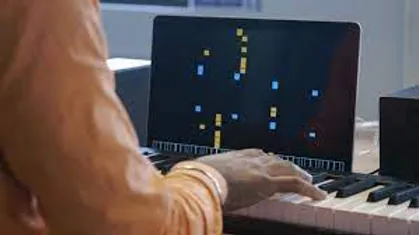In the quest to develop advanced artificial intelligence, researchers have turned to a deadly game of capture the flag. By pitting AI agents against each other in this strategic game, scientists are exploring how these machines can learn to collaborate effectively.
In the quest to develop advanced artificial intelligence, researchers have turned to a deadly game of capture the flag. By pitting AI agents against each other in this strategic game, scientists are exploring how these machines can learn to collaborate effectively. Training AI agents requires them to understand complex teamwork dynamics, such as communication, coordination, and strategic decision-making. Through reinforcement learning techniques, the agents evolve their strategies over countless iterations, gradually honing their abilities to work together towards a common goal.
This innovative approach not only pushes the boundaries of AI capabilities but also provides valuable insights into how humans can enhance teamwork and collaboration within diverse domains beyond gaming scenarios.
Breaking a new barrier: Collaborating with humans
The ability to collaborate effectively with human teammates remains a challenge for AI systems, requiring them to understand and adapt to dynamic social interactions. In a groundbreaking development, researchers have now turned their attention towards using AI agents as team players in a deadly game of capture the flag—a classic testbed for cooperative behavior.
By immersing AI agents in this intense multiplayer environment, researchers aim to unravel the intricacies of teamwork and enable machines to become valuable contributors within human-AI teams.
Understanding The Game: Capture The Flag As A Testbed For Ai Teamwork
Capture the Flag (CTF) has emerged as a captivating testbed for training artificial intelligence (AI) systems to work collaboratively. This classic game, which involves teams competing to capture each other’s flags while defending their own, provides an ideal platform to study and enhance AI teamwork abilities.
CTF allows researchers to push the boundaries of AI capabilities in a dynamic and challenging environment. CTF is fitting because it involves complex scenarios that require cooperation, communication, and strategic decision-making. The game not only promotes individual AI agents’ learning but also emphasizes the significance of effective team coordination—a crucial aspect in real-world applications of AI teamwork.
The Power Of Cooperation: Unveiling The Strategies Employed By Ai Teams In Capture The Flag
In the realm of artificial intelligence, teamwork has become a pivotal aspect that allows machines to collaborate effectively in complex scenarios. The game of capture the flag provides an ideal testing ground for exploring how AI agents learn to cooperate and strategize as a team. By studying their behaviors and decision-making processes, researchers have uncovered fascinating insights into the power of cooperation within these AI teams.
These strategies involve not only efficient communication and information sharing but also intricate coordination and division of tasks among team members. The unveiling of these cooperative techniques sheds light on how artificial intelligence can mimic human collaboration, paving the way for advancements in various fields requiring teamwork-based problem-solving.
Implications And Future Prospects: Harnessing Ai Teamwork For Real-World Applications
The development of artificial intelligence capable of teamwork in a high-stakes game like capture the flag holds profound implications for real-world applications. By enabling AI agents to collaborate effectively, we unlock the potential for revolutionary advancements across various domains. Applications can include industries such as logistics, where cooperation and coordination are crucial. AI can power teams to streamline operations, optimize resource allocation, and enhance productivity.
Moreover, in emergency response scenarios or military operations, AI teams exhibiting teamwork abilities could assist human counterparts by executing complex tasks with precision and efficiency. Looking ahead, further research is required to refine AI teamwork techniques. There is also a need to address ethical concerns surrounding autonomous decision-making within teams and ensure robustness against adversarial attacks.

